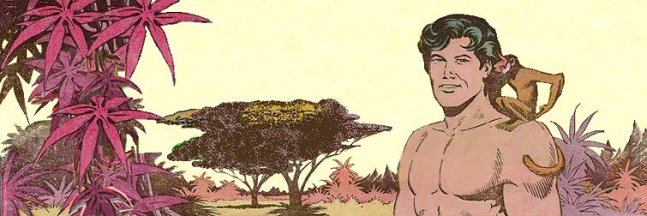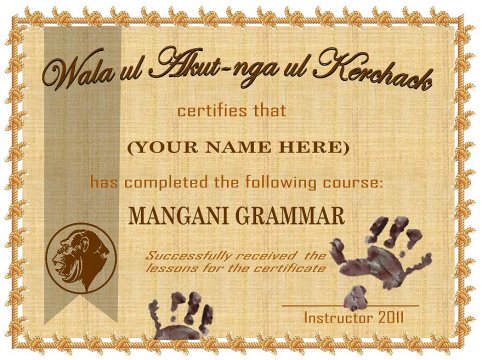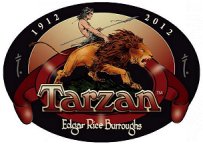|
wo
wala yud zu
|
this
house is big
|
|
wo
wala yud zu-ag
|
this
house is bigger
|
|
|
|
|
Tantor
yud zuvo-ag-et Níkima
|
Tantor
is stronger than Níkima
|
|
wo
wala yud zu-ag et wob wala
|
this
nest is bigger than that one
|
|
|
|
|
Níkima
tío zu
|
Níkima
doesnít seem strong
|
|
Níkima
tíodo zu-ag et Tantor
|
Níkima
doesnít seem stronger than Tantor
|
|
|
|
|
t'o
kewa rand-ze
|
(it)
doesn't seem to be back
|
|
t'o
kewa eho-hane
|
(it)
doesnít seem to have much work
|
|
|
|
|
yud
o ta o emo abalu
|
be
as tall as my brother
|
|
kewa
eho-hane o abalu
|
(I)
have much work to do as my brother
|
|
t'o
kewa eho-hane-ag
|
donít
seem to have very much work
|
|
t'odo
kewa eho-hane-ag et abalu
|
donít
seem to have very much work than him
|





